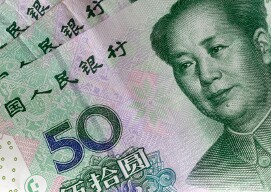The Chinese yuan is rallying at the end of the trading week, buoyed by better industrial output and continued stimulus by the federal government. Despite Beijing noting that economic growth is improving, analysts are still encouraging the government to maintain its interventionist policies â both monetary and fiscal.
Industrial production is surging in the worldâs second-largest economy. One area in particular is turning investors’ heads: cement output. In March, China produced 180 million tonnes of cement, which represents a 22% increase from the same time a year ago. This also is double the amount produced by the US all of 2018.
This could be an indication that the economy is gradually returning to normal and that investment is leading the countryâs growth. Should the positive trends continue, then it could offset the negative effects that still linger from the ongoing trade spat between the US and China.
There is another sector of the market that analysts aver is a good sign for the national economy: big-ticket home appliances.
Citi reports that air-conditioner output advanced 8% in the first quarter of 2018, washing machine production rose 4%, and refrigerator manufacturing slipped 4% â this is an improvement from last yearâs significant decline of 15%. As a result, this benefits the industrial metals market, since, for example, A/C units need copper and kitchen appliances require nickel and steel.
So, is China returning to normal? Not quite, warns a myriad of economists.
While Chinese public policymakers are interested in paring back stimulus spending, financial experts say that the government should wait. Concerned about weakness in the financial and real estate markets, analysts from Japanese investment bank Nomura note that recovery is ânot solid yet.â
We believe the pace of monetary easing will slow, but it is still too early to withdraw monetary easing measures despite the limited monetary policy scope.
Outsiders may argue that China needs greater stimulus, but officials are worried about rising debt levels â both public and private. This was on display after a series of high-profile debt defaults, including China Minsheng Investment Group, the nationâs largest privately-owned investment group, failed to make a debt payment. This event triggered $800 million in so-called cross defaults.
It has been reported before about the financial market bracing for a wave of corporate defaults.
The USD/CNY currency pair fell 0.2% to 6.7297, from an opening of 6.7431, at 16:38 GMT on Friday. The EUR/CNY tumbled 0.02% to 7.5066, from an opening of 7.5081.
If you have any questions, comments, or opinions regarding the Chinese Yuan, feel free to post them using the commentary form below.
